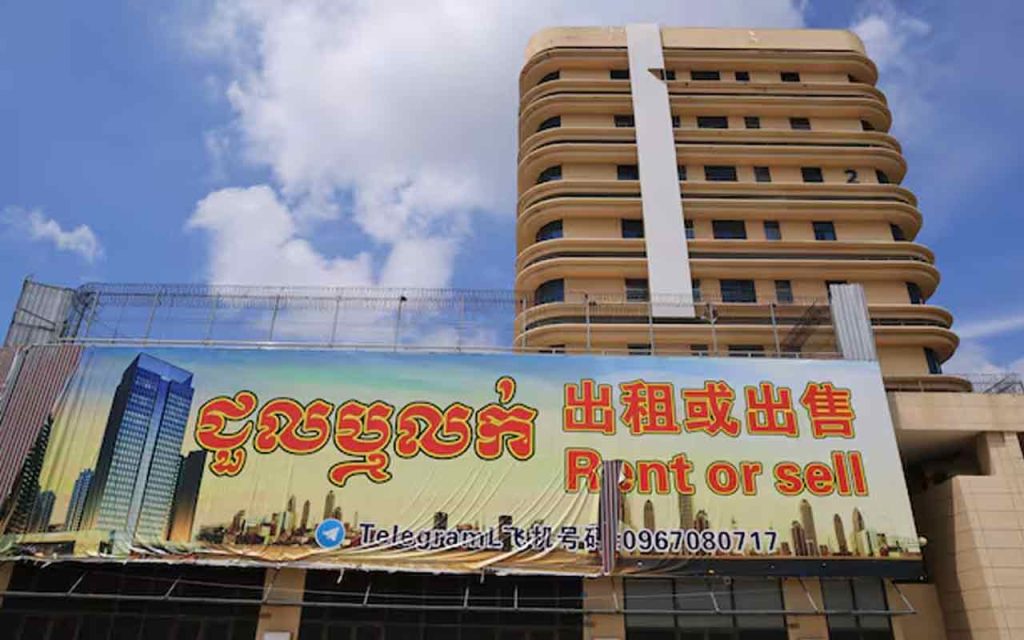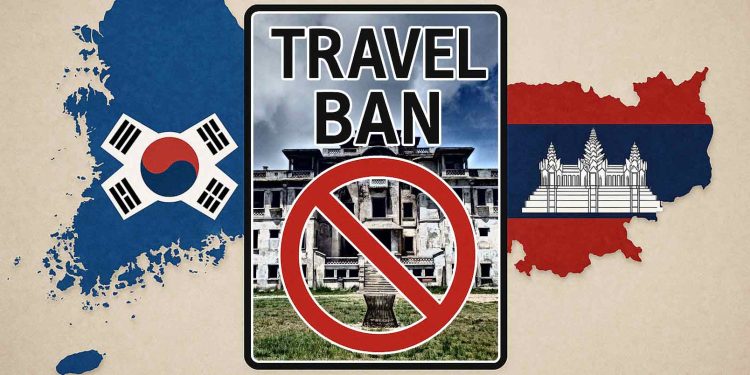As geopolitical risks rise across emerging markets, Korea’s export-oriented SMEs are proving their adaptability once again. Even as Cambodia faces a nationwide travel alert, Korean companies continue operating with minimal disruption—supported by swift policy coordination and on-site vigilance. Their response reflects how Korea’s SME ecosystem is evolving into a globally resilient, risk-conscious network shaping the next phase of cross-border growth.
Korean SMEs Maintain Stability Despite Cambodia Travel Bans
Following the Korean government’s recent Level 4 “Travel Ban” for parts of Cambodia, Korean small and medium-sized enterprises (SMEs) operating or trading in the region report that their business activities remain stable. The Ministry of SMEs and Startups (MSS) confirmed there has been no significant disruption to export operations or corporate travel.
As of the latest government data, about 2,000 Korean SMEs export to Cambodia, with a combined trade value of roughly KRW 630 billion (USD 440 million). Despite heightened safety alerts, most firms have continued normal operations and business meetings.
Why Cambodia’s Situation Matters for Korean Exporters
The South Korean government issued a Level 4 “Travel Ban” on October 15 for Cambodia’s Bokor Mountain area (Kampot Province), Bavet City, and Poipet City, citing security concerns linked to online scam compounds and cross-border criminal activities.
Other areas such as Sihanoukville Province were designated under a Level 3 “Advisory to Leave”, while Phnom Penh and six additional provinces were placed under a special travel advisory. The rest of the country was upgraded to Level 2 “Refrain from Travel.”
The elevated alerts stem from an increase in organized crime networks operating near the Cambodia–Vietnam border, which allegedly target foreigners lured by fake high-paying job offers or fraudulent employment postings.
However, these incidents remain unrelated to the operations of legitimate companies or business travelers.

Confidence in Korean Business Continuity in Cambodia
Korean exporters and local business leaders have expressed confidence that trade activities will continue without disruption.
Kim Jin-hee, CEO of JS Global, which supports SME exports to Cambodia, stated:
“There are no operational issues for our client companies. Consultations, meetings, and business visits are all proceeding as usual. The situation on the ground remains stable.”
She emphasized that recent incidents are isolated criminal cases involving individuals unrelated to corporate trade networks.
“I visited Cambodia last month to meet buyers. It’s important not to overinterpret these events—they concern people involved in illicit job networks, not legitimate enterprises,” she said.
A representative from a Korean furniture manufacturer operating a local plant also confirmed,
“Our operations are unaffected. Established B2B partnerships are built on verified trust, so the current safety alerts have no impact on production or delivery schedules.”
An employee from an interior design company who recently returned from Cambodia added,
“The news sounds alarming, but on-site, it’s calm. We continue to travel there regularly. As long as we follow basic safety measures, business proceeds normally.”
Proactive Monitoring and Rapid Coordination on Cambodia Incident
The Ministry of SMEs and Startups (MSS) has strengthened coordination with Korean diplomatic missions in Cambodia to ensure real-time monitoring and emergency response readiness.
An MSS official said:
“There have been no reported cases of export companies affected by the Cambodia situation. However, we are closely observing developments and maintaining open communication with overseas missions to ensure prompt action if difficulties arise.”
This coordinated vigilance is part of Korea’s broader SME globalization strategy, which emphasizes safety, market intelligence, and risk management in emerging markets.
Korea – Cambodia Travel Bans: A Case Study in Risk Management and Policy Coordination
The Cambodia case illustrates how Korea’s export-driven SME ecosystem has matured into a globally resilient network capable of withstanding regional shocks.
The country’s SME policy infrastructure — anchored by the Ministry of SMEs and Startups, KOTRA, and Korea SMEs and Startups Agency (KOSME) — has built strong support systems for crisis response, export counseling, and on-the-ground coordination through embassy partnerships.
This resilience is especially relevant as Korean startups and SMEs increasingly expand into Southeast Asia’s emerging markets, where security, governance, and operational risks coexist with high growth potential.
While the Cambodia travel ban highlights short-term safety concerns, it also demonstrates the strength of Korea’s institutional capacity to protect its entrepreneurs and maintain international business continuity.
Global Resilience as the Next Growth Advantage for Korean SMEs and Startups
The continued stability of Korean SME operations in Cambodia reflects more than risk endurance—it shows the strategic maturity of Korea’s global business ecosystem.
By combining government coordination, corporate agility, and localized intelligence, Korean SMEs are building an operational model that balances growth and resilience in volatile environments.
Eventually, the whole case and travel bans happening in Cambodia serves an indicator for emerging market investors as well as policymakers: that Korean SME globalization is now evolving, and not just expanding across borders but doing so safely, systematically, and sustainably.
🤝 Looking to connect with verified Korean companies building globally?
Explore curated company profiles and request direct introductions through beSUCCESS Connect.
– Stay Ahead in Korea’s Startup Scene –
Get real-time insights, funding updates, and policy shifts shaping Korea’s innovation ecosystem.
➡️ Follow KoreaTechDesk on LinkedIn, X (Twitter), Threads, Bluesky, Telegram, Facebook, and WhatsApp Channel.






